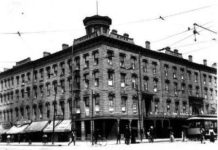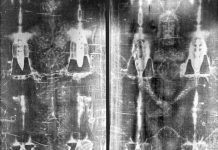
One of the biggest mysteries in Russia remains the ‘missing’ gold of the last Tsar of Russia – worth ‘up to £50 billion’ at today’s prices – which is believed to be stashed or lost in Siberia.
Missing Gold
Some 95 years after Nicholas the Second and his family were shot by a firing squad loyal to Bolshevik leader Vladimir Lenin, six sites have been identified where the royal treasure may be located.
Two of them are in the world’s deepest lake and another is in a region notorious for its gulag prison camps during the Stalin era.
Gold from the Russian Imperial state was moved eastward during the First World War and initially held in Kazan on the Volga River.

After the Reds seized power in the capital, Petrograd, now St Petersburg, the anti-Communists moved it by train into Siberia.
Here it was under the control of Admiral Alexander Kolchak, who led the White Russian forces loyal to the royal family during the civil war which engulfed the country from 1918-20.
Certainly some of the treasure was used to buy arms to use against Lenin’s forces, but historians are divided over how much was later grabbed by the Communists. Doubts also remain on the quantity of Tsarist gold sneaked abroad or hidden or lost in Siberia
Buried deep!
Strangely, another theory is that troops carrying the gold tried crossing the ice covered Baikal – the world’s deepest lake – in winter but perished on as temperatures slumped to minus 60C. It is said the gold is now deep in lake Baikal
When the ice melted in spring, the gold sank to the bottom of the lake.
Other theories link stashes of the the 1,600 tons of gold to two sites in Omsk, where Kolchak had his headquarters. One is in labyrinthine passages under the city, another close to a nearby village, Zakhlamino.
A further possible site is in the former gulag region of Krasnoyarsk, where a mysterious graveyard of some 500 White soldiers is alleged to have been found. Local folklore suggests the forces stashed the gold shortly before they were slaughtered.
Meanwhile author Valery Kurnosov believes MI6 has information on a separate collection of gold and treasures from a tsarist-era bank close to Kazan.
A British secret agent called Roger Gariel was involved in a joint operation in 1928 involving the Soviet government and Western figures to find the gold in a forest near the city. The operation failed and the Soviet government later continued the hunt but never found it, he said.













